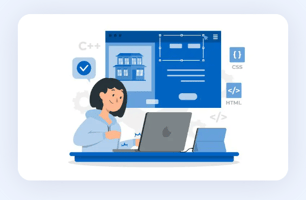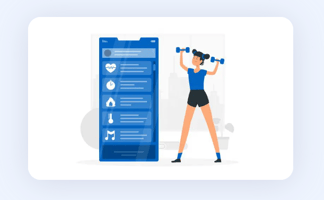Introduction In the fast-paced world of commercial real estate, staying ahead of the competition...
Real Estate App Development Cost: A Comprehensive Guide
Introduction
In today's fast-paced digital world, the real estate industry has embraced technology to enhance its operations and provide better services to clients. One such technology that has gained immense popularity is real estate mobile applications. These apps offer convenient features such as property listings, virtual tours, mortgage calculators, and much more. However, if you're considering developing a real estate app, you might wonder about the cost involved. In this article, we'll delve into the various aspects that determine the real estate app development cost and provide you with a comprehensive understanding of the process.
1. Understanding Real Estate App Development
Before we delve into the cost aspect, let's understand what goes into real estate app development. Developing a real estate app involves several steps, from ideation and planning to design, development, testing, and deployment. Each phase requires expertise and time to ensure a successful and user-friendly app.
2. Factors Influencing Real Estate App Development Cost
Several factors play a crucial role in determining the cost of developing a real estate app. Let's take a closer look at each one:
a) App Features and Functionality
The features and functionality you want to incorporate into your app significantly impact the development cost. Basic apps with standard features will be more cost-effective than those with advanced functionalities like augmented reality property tours, advanced search filters, and integrated chat support.
b) Platform (iOS, Android, or Both)
Deciding whether you want your app to be available on iOS, Android, or both platforms will affect the overall cost. Developing an app for multiple platforms requires more resources and time.
c) Design Complexity
The complexity of the app's user interface and overall design also affects the cost. A simple and intuitive design will cost less compared to a sophisticated and intricate one.
d) App Development Team
The expertise and location of the development team influence the cost. Hiring a skilled team might be more expensive, but it ensures a high-quality app.
e) App Security
Real estate apps deal with sensitive user data, making security a top priority. Implementing robust security features can add to the development cost.
f) Third-party Integrations
If you plan to integrate third-party services like payment gateways or property data providers, it will impact the overall cost.
g) App Maintenance and Updates
Factoring in the cost of app maintenance and future updates is essential to ensure the app remains functional and up-to-date.
3. The Development Process
Now that we understand the factors influencing the cost, let's take a closer look at the development process:
a) Ideation and Planning
This initial phase involves brainstorming ideas, defining the app's purpose, and creating a detailed plan outlining features, user flow, and technical requirements.
b) Design and Prototyping
In this stage, designers create wireframes and prototypes to visualize the app's layout and user interface. User experience (UX) testing is also conducted to refine the design.
c) Development
The development team starts building the app based on the finalized design and technical specifications. Regular testing ensures the app functions smoothly.
d) Testing and Quality Assurance
Thorough testing is crucial to identify and rectify any bugs or issues. Quality assurance ensures the app meets the highest standards before launch.
e) Deployment
Once the app passes all tests, it's ready for deployment on the chosen app stores, such as the Apple App Store or Google Play Store.
f) Maintenance and Updates
Post-launch, the app requires regular maintenance and updates to fix bugs, introduce new features, and adapt to changes in technology.
4. Frequently Asked Questions (FAQs)
1. What is the average cost of developing a real estate app?
The cost of developing a real estate app can vary widely depending on the factors mentioned earlier. On average, it can range from $30,000 to $150,000 or more.
2. How long does it take to develop a real estate app?
The development timeline can vary based on the app's complexity and features. A basic app might take around 3 to 4 months, while more sophisticated ones could take 6 months or longer.
3. Should I choose native or hybrid app development?
Native apps offer better performance and user experience, but they can be costlier. Hybrid apps are more budget-friendly and work across multiple platforms, but they might not perform as well as native apps.
4. Can I add new features to my app after launch?
Yes, you can add new features through updates after the app's initial launch. Regular updates help keep the app relevant and engaging for users.
5. How do I ensure my app's security?
To ensure app security, hire experienced developers who follow industry best practices. Regular security audits and updates are also essential.
6. What are the ongoing maintenance costs for a real estate app?
The maintenance costs depend on the complexity of the app and the frequency of updates. On average, maintenance can cost around 15% to 20% of the initial development cost annually.
Conclusion
Developing a real estate app involves careful planning, design, and implementation, all of which contribute to the overall cost. By understanding the various factors influencing the real estate app development cost, you can make informed decisions that align with your budget and app requirements. Remember to prioritize security, user experience, and ongoing maintenance to ensure your real estate app remains successful and competitive in the ever-evolving digital landscape.


